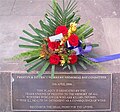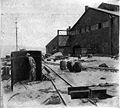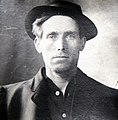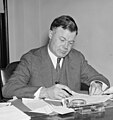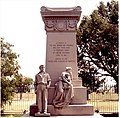
Introduction
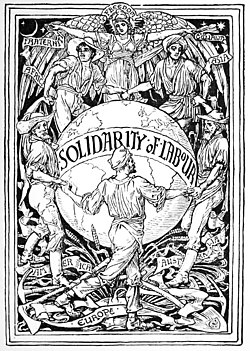
- In trade unions, workers campaign for higher wages, better working conditions and fair treatment from their employers, and through the implementation of labour laws, from their governments. They do this through collective bargaining, sectoral bargaining, and when needed, strike action. In some countries, co-determination gives representatives of workers seats on the board of directors of their employers.
- Political parties representing the interests of workers campaign for labour rights, social security and the welfare state. They are usually called a labour party (in English-speaking countries), a social democratic party (in Germanic and Slavic countries), a socialist party (in Romance countries), or sometimes a workers' party.
- Though historically less prominent, the cooperative movement campaigns to replace capitalist ownership of the economy with worker cooperatives, consumer cooperatives, and other types of cooperative ownership. This is related to the concept of economic democracy.
The labour movement developed as a response to capitalism and the Industrial Revolution of the late 18th and early 19th centuries, at about the same time as socialism. The early goals of the movement were the right to unionise, the right to vote, democracy and the 40-hour week. As these were achieved in many of the advanced economies of western Europe and north America in the early decades of the 20th century, the labour movement expanded to issues of welfare and social insurance, wealth distribution and income distribution, public services like health care and education, social housing and common ownership. (Full article...)
Selected article
Cesario Estrada Chavez (/ˈtʃɑːvɛz/; Spanish: [ˈtʃaβes]; March 31, 1927 – April 23, 1993) was an American labor leader and civil rights activist. Along with Dolores Huerta and lesser known Gilbert Padilla, he co-founded the National Farm Workers Association (NFWA), which later merged with the Agricultural Workers Organizing Committee (AWOC) to become the United Farm Workers (UFW) labor union. Ideologically, his worldview combined left-wing politics with Catholic social teachings.
Born in Yuma, Arizona, to a Mexican-American family, Chavez began his working life as a manual laborer before spending two years in the U.S. Navy. Relocating to California, where he married, he got involved in the Community Service Organization (CSO), through which he helped laborers register to vote. In 1959, he became the CSO's national director, a position based in Los Angeles. In 1962, he left the CSO to co-found the NFWA, based in Delano, California, through which he launched an insurance scheme, a credit union, and the El Malcriado newspaper for farmworkers. Later that decade, he began organizing strikes among farmworkers, most notably the successful Delano grape strike of 1965–1970. Amid the grape strike, his NFWA merged with Larry Itliong's AWOC to form the UFW in 1967. Influenced by the Indian independence leader Mahatma Gandhi, Chavez emphasized direct nonviolent tactics, including pickets and boycotts, to pressure farm owners into granting strikers' demands. He imbued his campaigns with Roman Catholic symbolism, including public processions, Masses, and fasts. He received much support from labor and leftist groups but was monitored by the Federal Bureau of Investigation (FBI).
In the early 1970s, Chavez sought to expand the UFW's influence outside California by opening branches in other U.S. states. Viewing illegal immigrants as a major source of strike-breakers, he also pushed a campaign against illegal immigration into the U.S., which generated violence along the U.S.-Mexico border and caused schisms with many of the UFW's allies. Interested in co-operatives as a form of organization, he established a remote commune at Keene. His increased isolation and emphasis on unrelenting campaigning alienated many California farmworkers who had previously supported him, and by 1973 the UFW had lost most of the contracts and membership it won during the late 1960s. His alliance with California Governor Jerry Brown helped ensure the passing of the California Agricultural Labor Relations Act of 1975, although the UFW's campaign to get its measures enshrined in California's constitution failed. Influenced by the Synanon religious organization, Chavez re-emphasized communal living and purged perceived opponents. Membership of the UFW dwindled in the 1980s, with Chavez refocusing on anti-pesticide campaigns and moving into real-estate development, generating controversy for his use of non-unionized laborers. (Full article...)
November in Labor History
Significant dates in labour history.
- November 01 - Malbone Street Wreck occurs on the first day of the BLE strike in 1918 in the U.S.; the first congress of the International Trade Union Confederation is held; the International Harvester strike of 1979–80 began
- November 02 - Brian Behan died
- November 03 - Nathan Feinsinger died; the U.S. Supreme Court decided Marquez v. Screen Actors Guild Inc.; Dennis McDermott was born
- November 04 - Tomasz Arciszewski was born; James Green was born
- November 05 - Eugene V. Debs was born; Nimrod Workman was born; Agustín Tosco died; the 2007 Writers Guild of America strike began
- November 06 - Lloyd McBride died
- November 08 - Ed Boyce was born; the 1892 New Orleans general strike began
- November 09 - Congress of Industrial Organizations founded in the U.S.; Philip Murray died; Danny Greene was born; the Chicago Federation of Labor is founded
- November 11 - Centralia massacre occurs in the U.S.
- November 12 - Bituminous coal strike of 1974 begins in the U.S.; the Democratic Confederation of San Marino Workers is formed
- November 13 - The UK firefighter dispute 2002–03 begins; Karen Silkwood died; the International Typographical Union begins publishing the Green Bay News-Chronicle during a strike
- November 14 - The High Court of Australia issues its ruling in New South Wales v Commonwealth, upholding the validity of WorkChoices; Daniel J. Tobin died; the 2007 German national rail strike began
- November 15 - Federation of Organized Trades and Labor Unions founded in the U.S.; Raymond McKay was born
- November 16 - Jean Maitron died; the Jamaica Association of Local Government Officers is founded; Georges Marchais died
- November 17 - Harold J. Gibbons died
- November 18 - Chris Watson died
- November 19 - William J. McCarthy died; Joe Hill is executed; the National Writers Union is formed
- November 20 - Giles Hart was born; Richard Cordtz died
- November 21 - William Green died; the Columbine Mine massacre occurred in 1927 in the U.S.
- November 22 - David McDonald was born; Philip Murray is elected president of the CIO
- November 23 - Harry Van Arsdale, Jr. died
- November 24 - Charles Millard died
- November 25 - George Mock died; the 2006 Progressive Enterprises dispute begins in New Zealand; Ted Saskin becomes executive director of the NHLPA in 2005
- November 26 - The National Confederation of the Trade-Union Organizations of Ukraine is formed; Nimrod Workman died; Eliot V. Elliott died
- November 27 - Donald Richberg died
- November 28 - The U.S. Supreme Court decides Eastern Associated Coal Corp. v. United Mine Workers of America; André Morell died; William McFetridge was born
- November 29 - John P. Frey died
- November 30 - Mary Harris "Mother" Jones died; the General Federation of Trade Unions of Korea is formed
More Did you know (auto-generated)
- ... that on March 2, 2022, 86 percent of workers in New York City's REI store voted in favor of the outdoor recreation retailer's first ever trade union, REI Union SoHo?
- ... that when journalist and trade unionist Nisn Pups was released from jail, the Communist Party of Lithuania instructed him to change his name?
- ... that Russian pianist Pavel Kushnir died on a hunger strike after his arrest for anti-war videos posted on a YouTube channel with five subscribers?
- ... that "The Strike" (1954), about an American officer's turmoil in ordering an air strike on his own men, was rated as Rod Serling's best script he had written to date?
- ... that on February 3, 1986, African Independence Party leaders Adama Touré and Adama Touré were released from detention?
- ... that the communist trade unionist Ditto Pölzl was a member of all three provisional state governments of Styria in 1945?
Related Portals
Selected image
Selected Quote
"To remember the loneliness, the fear and the insecurity of men who once had to walk alone in huge factories, beside huge machines—to realize that labor unions have meant new dignity and pride to millions of our countrymen—human companionship on the job, and music in the home—to be able to see what larger pay checks mean, not to a man as an employee, but as a husband and as a father—to know these things is to understand what American labor means."
|
— Adlai Stevenson |
Did you know
- ...that despite the relatively low level of academic output by Professor Gary Chaison, he is widely cited in the American mass media?
- ...that just three years after it was founded, the Spanish labor union Solidaridad Obrera became the Confederación Nacional del Trabajo?
- ... that a 1953 strike organized by the plantation workers trade union Sarbupri forced the Indonesian government to raise wages of estate labourers by 30 percent?
Topics
Get involved
Also see our sister WikiProject, Housing and Tenant Rights!
Associated Wikimedia
The following Wikimedia Foundation sister projects provide more on this subject:
-
Commons
Free media repository -
Wikibooks
Free textbooks and manuals -
Wikidata
Free knowledge base -
Wikinews
Free-content news -
Wikiquote
Collection of quotations -
Wikisource
Free-content library -
Wikiversity
Free learning tools -
Wiktionary
Dictionary and thesaurus
